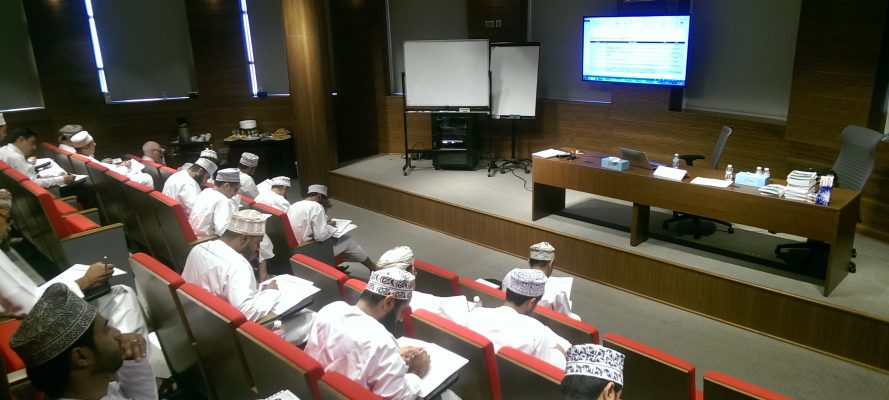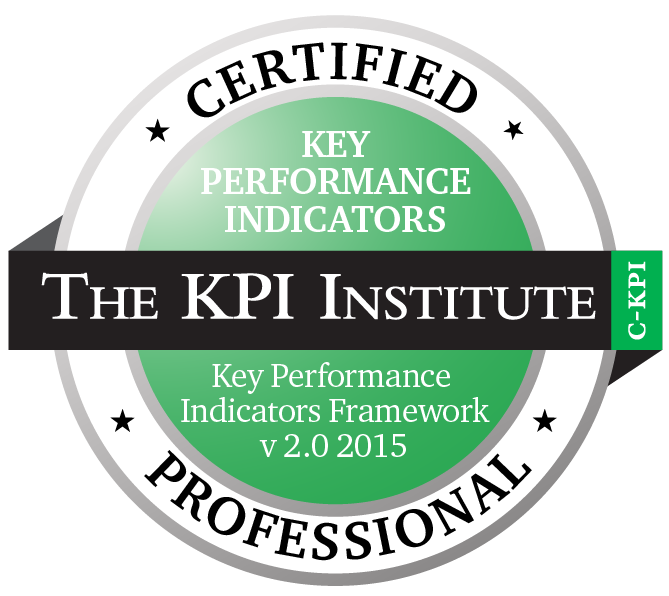C-KPI
Certified KPI Professional

KPI selection and data gathering are considered by professionals all around the world to be the most challenging aspects in working with KPIs. A way to address these challenges is to build a sound framework to measure KPIs, starting from the moment they are selected, until results are collected to be centralized in performance reports.
This training course presents a rigorous KPI Measurement Framework that embeds 10 years of research in the field of key performance indicators and relies on best practices identified in the real business environment.
3 Key Business benefits
- Improve the performance of your company by practicing a sound framework for KPI measurement;
- Obtain better business results by selecting the right KPIs to monitor for your company;
- Generate value from using KPIs by optimizing the data collection process;
- Support decision making by accessing relevant performance data;
- Use pre-populated tools to facilitate the implementation of a KPI Measurement Framework in your organization by receiving 10+ templates used in working with KPIs;
- Access an innovative learning experience based on a 3 stage educational process;
- Obtain premium recognition as a Certified KPI Professional by completing a unique international learning program;
- Expand your business network by becoming a member of the international Certified KPI Professionals Community.
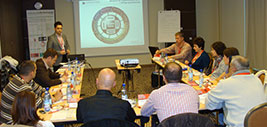
- Differentiate between objectives, KPIs and initiatives;
- Understand KPI selection in different contexts;
- Apply best practice techniques to KPI selection;
- Document KPIs in a standardized template;
- Learn when and how to use benchmarking in target setting;
- Optimize the KPI activation and data gathering process.
Day 1 – A standardized approach to KPIs
The World of KPIs
- Challenges in performance measurement;
- The value added by KPIs;
- KPIs concept map;
- Governance;
- Organizational levels.
Understanding KPIs
- KPI related terminology;
- SMART objectives decomposed by specific criteria;
- KPI lifecycle.
KPI typology
- Leading vs. lagging KPIs;
- Qualitative vs. quantitative KPIs;
- Efficiency vs. effectiveness KPIs.
KPI Taxonomy
- Interdisciplinary systemic worldview;
- KPI use case scenarios;
- KPI DNA map.
Day 2 – KPI selection and target setting
KPI selection
- KPI selection for organizational scorecard;
- KPI selection sources;
- KPI selection techniques.
KPI Alignment
- KPI alignment approaches
- KPI selection for corporate scorecard;
- KPIs cascaded to functional area.
KPI documentation
- KPI documentation form functions;
- KPI documentation form design;
- KPI documentation process;
- Organizational KPI libraries development;
Working with targets
- Target setting process;
- Challenges in working with targets;
- Weights and indexes;
- Negative behaviors when setting targets.
Day 3 – Data gathering and visualization
Data gathering
- Data quality dimensions;
- KPI reporting data sources;
- KPI activation tools;
- KPI activation techniques;
- Working with data custodians;
- Data collection methods.
Data visualization
- Guidelines to designing efficient templates;
- Usability in terms of visual design;
- Scorecard and dashboard design.
Review and certification exam
- Course review;
- Certification exam.

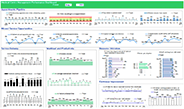
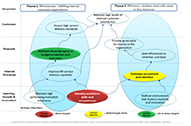
1. Course materials that consist in:
-
-
- Course slides
- Course notes
-
2. Performance Management Toolkit, containing the following templates:
-
-
- Desired State of Evolution;
- Strategy Map;
- Performance Scorecard;
- Performance Dashboard;
- Performance Healthogram;
- Performance Maturity Model;
- KPI Documentation;
- Initiatives Portfolio;
- Initiatives Documentation Form;
- Performance Management System Architecture;
- Monthly Performance Management Process;
- Employee Scorecard.
-
Furthermore, the templates are accompanied by two manuals and two publications:
-
-
- Performance Dashboard Guide for Administrator;
- Performance Scorecard Guide for Administrator;
- KPIs for Human Resources Dashboard;
- KPIs for Human Resources Scorecard.
-
3. Premium Subscription on smartKPIs.com available for 6 months, providing access to 500 fully documented KPIs and over 20.000 KPIs enlisted;
4. One research report from the Top 25 KPIs series;
5. Free access to all webinars from the 2014 Performance Management series.
Professionals interested in measuring performance
Professionals from different fields, such as finance, human resources, production, logistics, information technology and others, interested in key performance indicators, will acquire the competencies needed to measure the performance of their team, department or organization.
Top/middle/lower management professionals
Executives or operational managers, regardless of their field of expertise, will gain the ability and knowledge to measure performance and maximize the value of using KPIs. The tools and resources offered as part of the Certified KPI Professional Training Course enable managers to apply the concepts learned within their organizations, immediately after the course.
Performance measurement experts
For professionals like Data Analyst, Strategy Manager, Performance Management Officer or Performance Architect, it is important to develop competencies in measuring performance, especially in terms of KPI selection and data gathering.
Usually, this particular audience already has a performance measurement system set in place and the Certified KPI Professional Training Course offers them the opportunity to learn the best practices used in this field and identify how their current processes and approaches regarding KPIs can be improved.

This course will be delivered by one of our trainers. Our faculty are certified master trainers, with abundant experience as both practitioners and education providers. Having both professional and academic experience, our trainers are able to bring the depth and breadth of their knowledge to our courses.
Being extensively certified reaffirms our credibility as a training provider and also supports our goal of delivering consistent quality to our valued clients.
For more details visit Our Faculty page.

Pre-course
This part of the learning experience is meant to ensure a smooth transition to the face to face training. Participants are required to take the following steps:
- Needs assessment – complete a questionnaire to determine a tailored and relevant learning experience;
- Pre-course evaluation quiz – take a short quiz to establish the current level of knowledge;
- Guidance and schedule – analyze a document presenting guidelines on how to maximize your learning experience;
- Forum introduction – share an introduction message to present yourself to the other course participants;
- Expectations – share your expectations regarding the training course;
- Pre-requisite reading – go through a series of documents to better understand the core-course content.

Core Course
During the three days of face to face training, the course is designed to facilitate experiential learning and ensure a high level of interactivity. Exercises used to enhance the development of competencies range from simple matching of concepts to extensive analysis of case studies.
The learning experience consists in:
- Applying concepts in practical exercises;
- Analyzing case studies and identifying solutions;
- Using templates to develop performance measurement instruments;
- Sharing experiences and best practices;
- Creating a network of KPI Professionals;
- Constantly evaluating the participants’ knowledge, through short quizzes to support the certification exam.

After-Course
The learning process is not finalized when the core-course ends. Participants are required to take the following steps:
- Forum discussions – initiate a discussion and contribute in a discussion opened by another participant;
- Action plan – create a plan for the actions and initiatives you intend to implement after the training course;
- Performance Improvement Essentials – watch a 45 minutes webinar presenting the KPI measurement as part of a system that ensures performance improvements and achievement of objectives;
- In-house presentation – create and submit a short PowerPoint presentation to present your colleagues the knowledge you have accessed during the training course;
- Additional reading – go through a series of resources to expand your content related knowledge;
- Learning journal – reflect upon your 3 stages learning experience and complete a journal.
The certification process is finalized only when you complete all of the 3 stages of the learning experience. Nonetheless, you will receive a:
- Certificate of Attendance: after participating at the 3 days of on-site training course;
- Certified KPI Professional diploma: after you have successfully completed all of the 3 stages of the learning experience.
We strongly recommend that you obtain the Certified KPI Professional title, as this endorses your skills and knowledge related to this field.
- Key Performance Indicators Infographic – Get insights on how to properly work with KPIs by understanding the critical steps in selecting, documenting and reporting KPIs.
- Documentation Forms Catalogue – Access a set of relevant KPI documentation forms used by organizations from various industries and learn how to configure your KPIs.
- KPIs in Practice Fact Sheet – Review a collection of good practice KPI examples that helps you understand what KPIs to measure according to the four perspectives of a business.
- Glossary of Terms – Get familiar with the most important terminology used when designing a KPI Measurement Framework.
- Highlights of Training Sessions – Get a quick insight into some the course content and structure.
- Performance Measurement Articles - Grasp a sample of our acumen and best practices through this fair selection of valuable articles.
- KPI Documentation Form Template – Find out how to document your KPIs in a clear, structured, standardized manner.
You can check our course locations and dates here.




